Iran says “there is nothing new” in the International Atomic Energy Agency report » Today Latest Stories

ERBIL, Iraqi Kurdistan: The Middle East and North Africa region has witnessed another turbulent year, marked by events ranging from the worst earthquake of the century to the bloodiest chapter yet in the Israeli-Palestinian conflict.
However, at the same time, the year also saw promising signs of reconciliation between old rivals and enemies, as well as progress in addressing the causes of climate change and mitigating its impacts.
January
Burning the Qur’an
The burning of a copy of the Holy Quran by far-right agitators outside the Turkish embassy in the Swedish capital Stockholm on January 21 sparked angry protests across the Muslim world.
The burning of the Holy Quran in Sweden by far-right agitators has sparked protests in Muslim communities around the world, including the Middle East. (AFP)
While the demonstrations in Bahrain, Jordan and Lebanon were peaceful, supporters of Iraqi cleric Muqtada al-Sadr clashed with police as they attempted to attack the Swedish embassy in Baghdad.
The Sadrists organized subsequent protests in July after burning more Qurans in Sweden and Denmark, attacking the Swedish embassy in Baghdad and attempting to storm the city’s Green Zone to attack the Danish embassy.
Earlier this month, Denmark passed, by a vote of 94 to 77, what is known as the Qur’an Law, which prohibits “inappropriate treatment” of religious texts. Perpetrators now face a fine or imprisonment for up to two years.
February
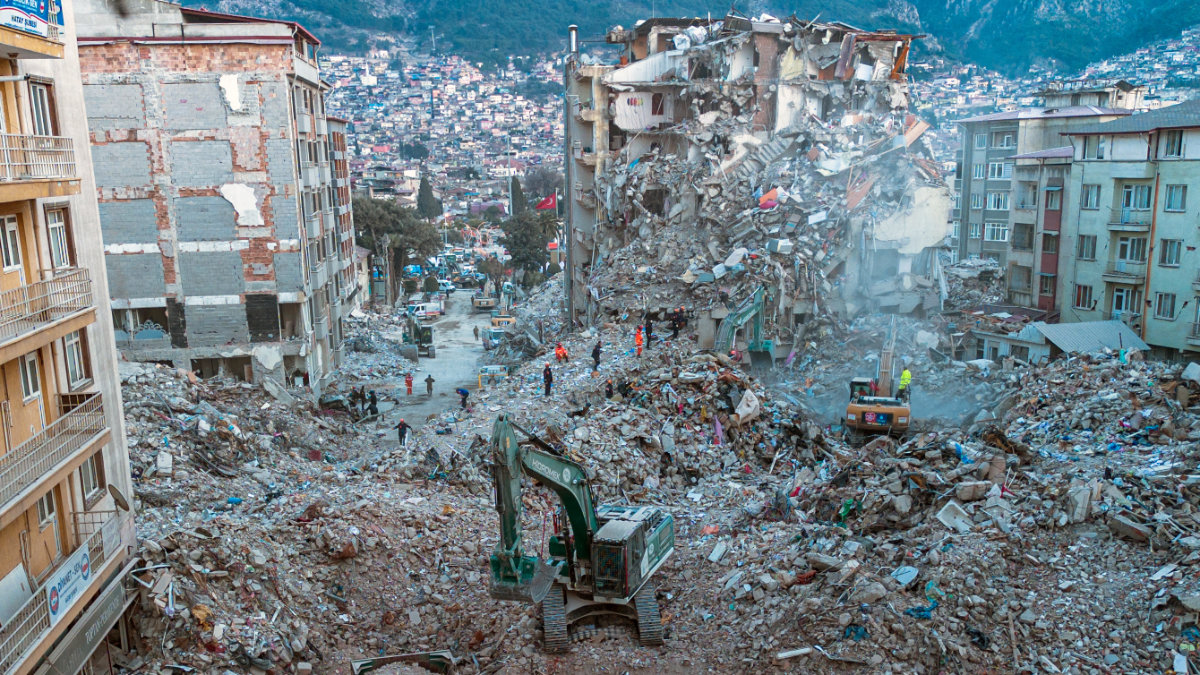
A massive 7.8-magnitude earthquake has devastated parts of Turkey and Syria, killing more than 50,000 people in Turkey and 8,000 in the latter.
Earthquakes in Türkiye and Syria
Two earthquakes wreaked devastation on an unprecedented scale in southern Turkey and northern Syria on February 6, killing more than 50,000 people in the former and 8,000 in the latter.
The quake – the worst earthquake Turkey has seen since 1939 – was felt as far away as Egypt and Turkey’s Black Sea coast.
Although the disaster is devastating, it has contributed to notable improvements in regional diplomatic relations. Late in the month, the Egyptian Foreign Minister visited Syria and Turkey for the first time in more than a decade.
Several regional governments have also provided humanitarian aid to Syria, leading to a thaw in relations with the hitherto isolated government in Damascus.
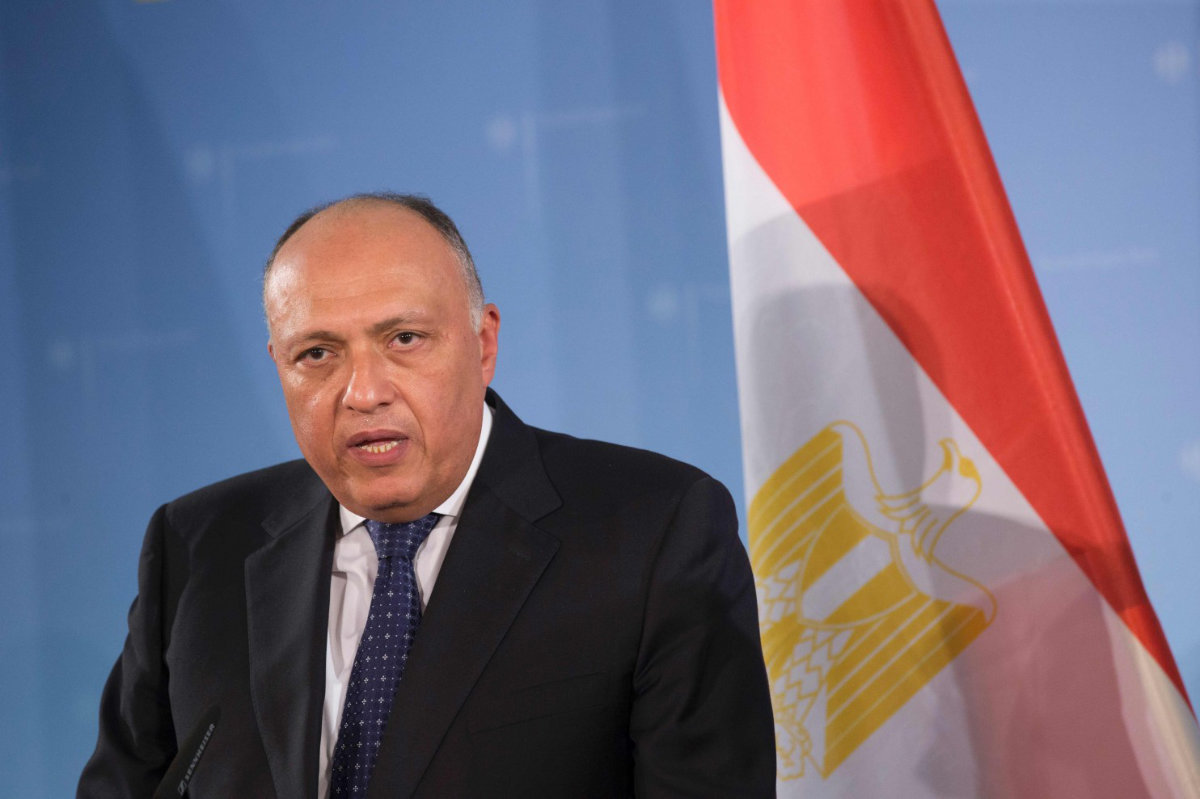
Egyptian Foreign Minister Sameh Shoukry visited both Syria and Turkey for the first time in more than a decade, indicating a thaw in relations between the two countries. (AFP)
He walks
The Saudi-Iranian deal
March 10 will see further reconciliation in the region with Saudi Arabia and Iran agreeing to restore diplomatic relations and reopen their embassies as part of a China-brokered deal.
After severing ties in 2016, the two countries marked an important turning point in the move, especially given Tehran’s long-standing support for militia proxies across the region, including the Houthis in Yemen.
This development has renewed hopes that several outstanding conflicts in the Middle East involving proxy armies could finally see a peaceful resolution.

In a historic agreement brokered by China, Iran and Saudi Arabia agreed to reopen their embassies and resume diplomatic relations severed since January 2016. (Agence France-Presse)
April
Sudan conflict
After years of instability following the overthrow of ruler Omar al-Bashir in 2019, Sudan descended into civil war on April 15 amid clashes between the rival Sudanese Armed Forces and the paramilitary Rapid Support Forces.
The ongoing war has claimed nearly 10,000 lives, displaced millions, and destroyed the capital, Khartoum. This also led to renewed fears of another genocide in the troubled Darfur region.
With ceasefire talks making little progress and the global focus on the wars in Ukraine and Gaza, the conflict in Sudan has turned into an neglected crisis that nonetheless threatens broader regional security.
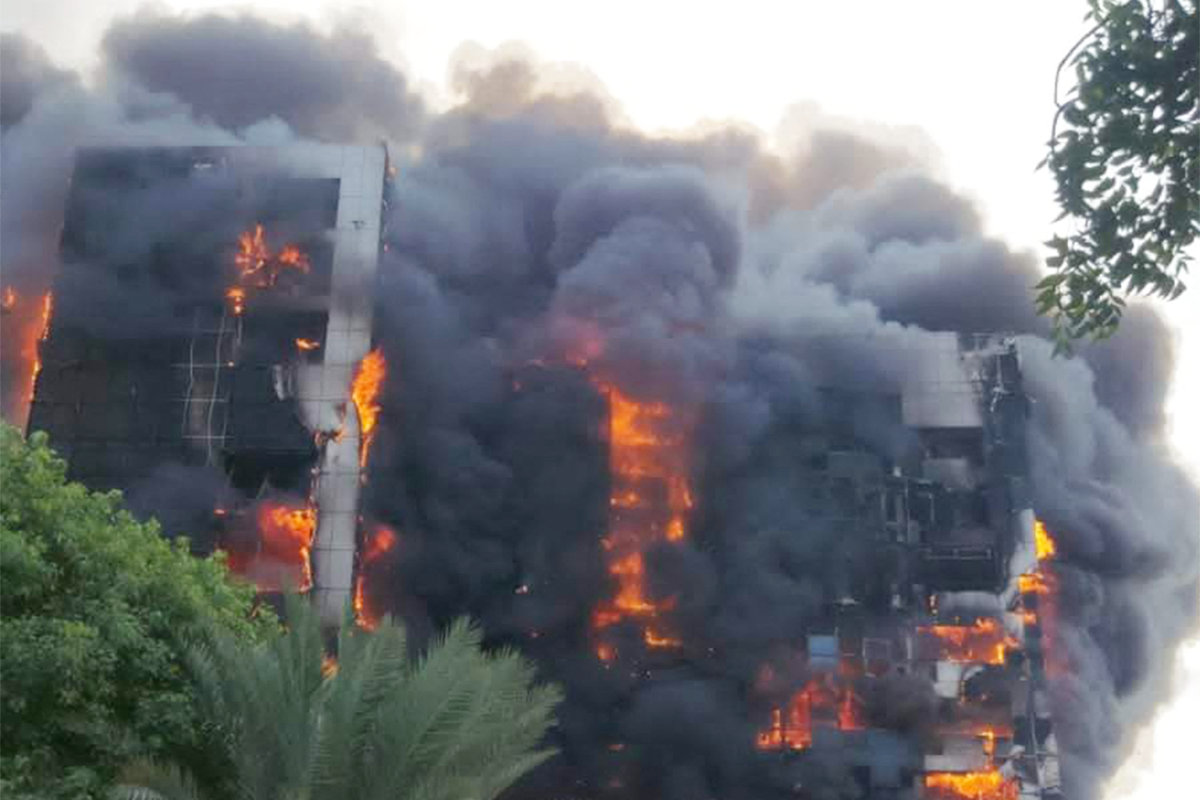
Civil war broke out in Sudan between the rival Sudanese Armed Forces and the paramilitary Rapid Support Forces. (AFP)
maybe
Syria’s return to the Arab fold
Foreign ministers of Arab League member states met on May 8 at the League’s headquarters in Cairo and voted to restore Syria, a country that had long been a pariah on the global stage, to its normal status.
Syria’s membership in the Arab League was revoked following the regime’s deadly crackdown on anti-government protesters in 2011, which later escalated into a full-blown civil war.
Although the conflict has not yet been fully resolved, the thaw represents an important step towards rebuilding destroyed infrastructure and ending the suffering of millions of displaced Syrians.
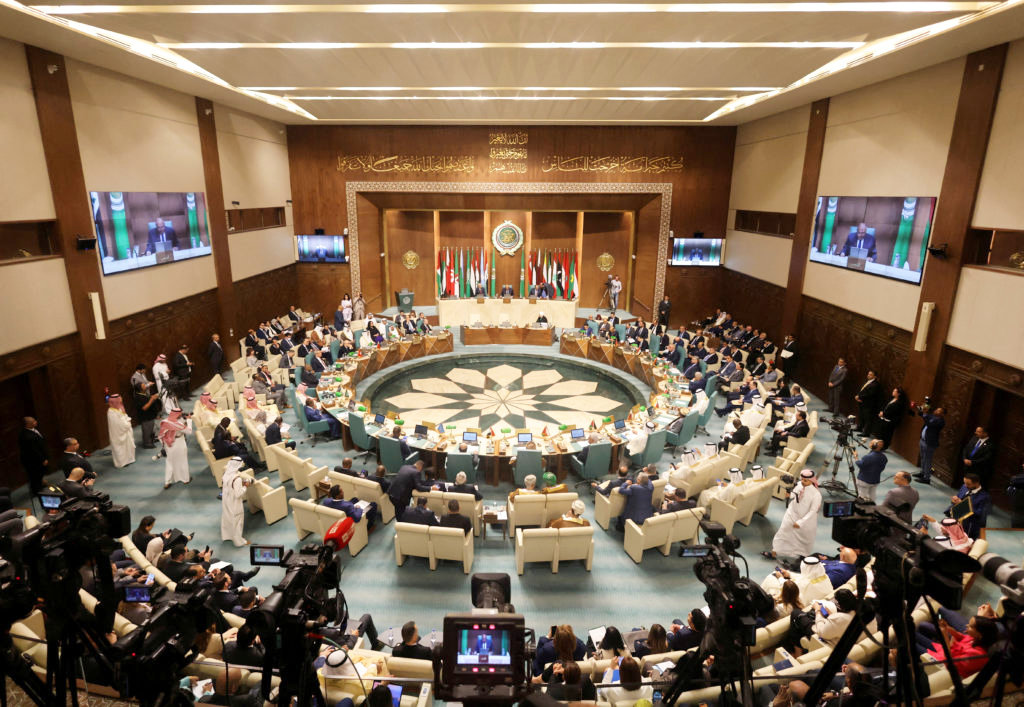
Foreign ministers of Arab League member states vote on reinstating Syria’s membership in the league at a meeting at the organization’s headquarters in Cairo on May 8, 2023. (AFP)
June
The conflict between Türkiye and the Kurdistan Workers’ Party intensifies
On June 13, the Kurdistan Workers’ Party, better known by its acronym PKK, ended the unilateral ceasefire it had established with the Turkish state following the February earthquakes.
In response, Turkey has dramatically increased strikes against the group’s hideouts in Iraqi Kurdistan, along with targeted assassinations of its leadership.
The leftist group has been leading a decades-long rebellion against the Turkish state with the aim of creating a semi-autonomous Kurdish state in southeastern Turkey.
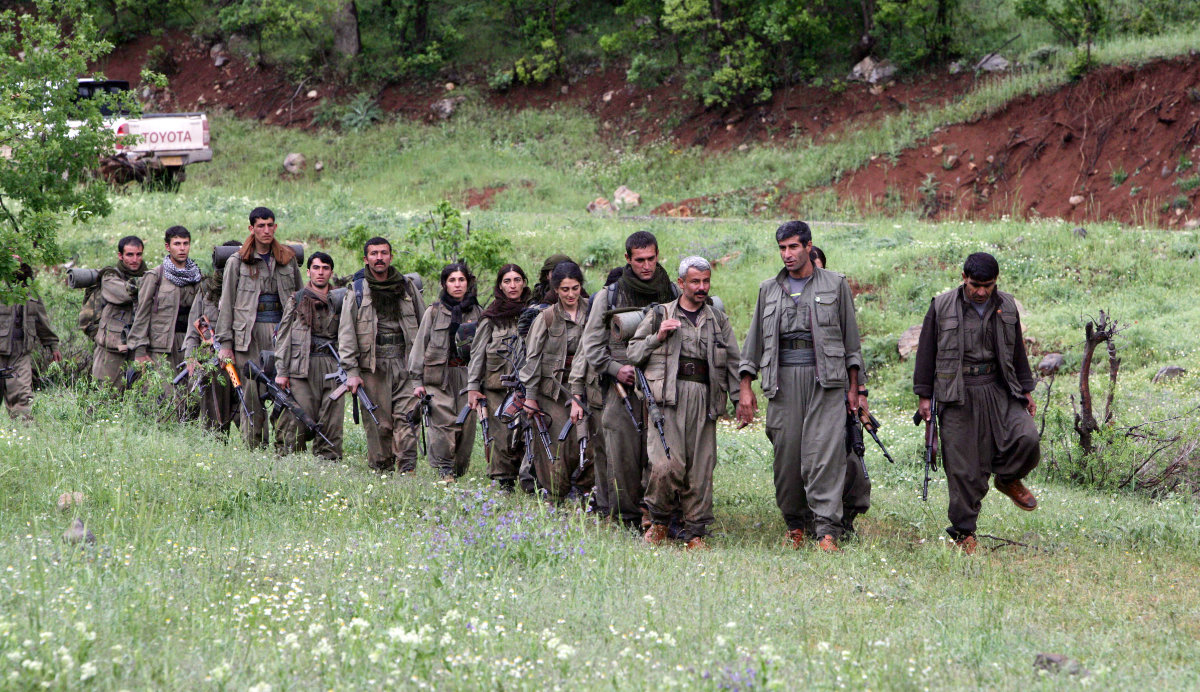
On June 13, the PKK ended the unilateral ceasefire with Turkey that it had implemented after the February earthquake. (AFP)
July
Protests in Israel
Israel’s parliament, the Knesset, passed the first controversial judicial reform bill introduced by Prime Minister Benjamin Netanyahu on July 24.
The ratification of the bill came despite widespread internal protests in Israel since the beginning of the year and calls by US President Joe Biden to postpone it.
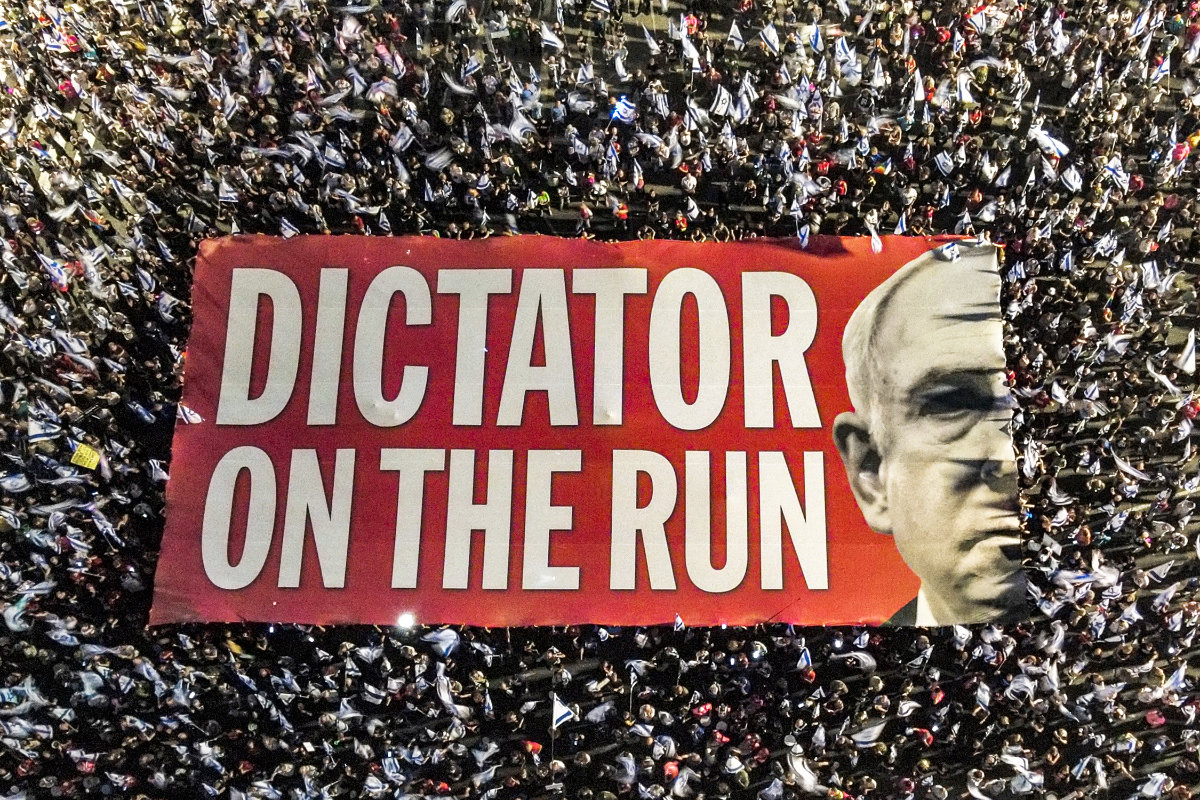
The Israeli Parliament (Knesset) passed the first controversial judicial reform bill introduced by Prime Minister Benjamin Netanyahu, sparking massive protests. (AFP)
In an unprecedented move, thousands of Israeli army reservists have warned that they will stop reporting for duty if the bill is passed.
However, the October 7 attack has tempered the government’s apparent determination to press ahead with its controversial reform.
August
New Syria protests
While 2023 saw the Syrian government gradually reintegrate into the Arab fold, the situation in the country remained dire for many of its citizens.
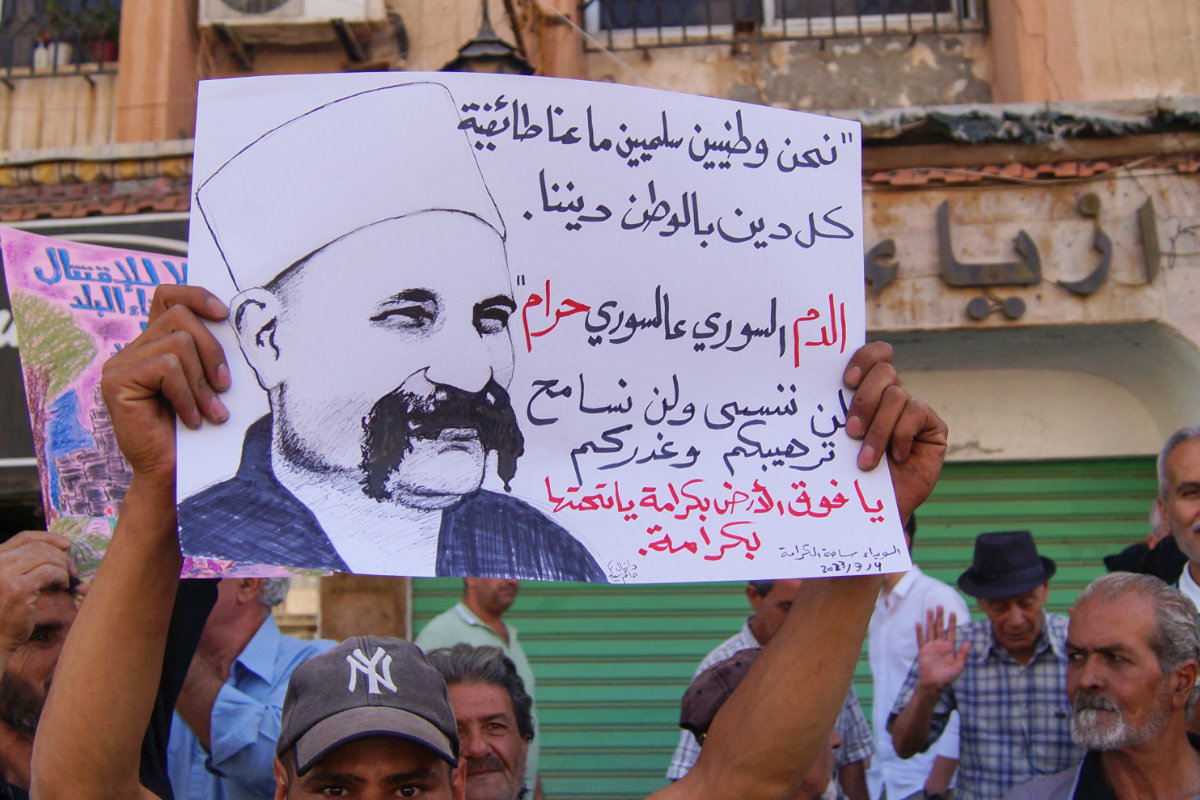
Syrians in the southern Druze city of Suwayda began protesting against the debilitating economic situation in the country and record high inflation. (AFP)
On August 17, Syrians in the Druze-majority southern city of Suwayda began protesting against the country’s debilitating economic conditions and record high inflation.
The protests quickly spread, leading to renewed calls for the removal of President Bashar al-Assad – the most vocal criticism of his regime since the 2011 uprising.
August also witnessed unprecedented clashes in eastern Syria after the Kurdish-led Syrian Democratic Forces arrested an Arab commander in the Deir ez-Zor Military Council.
The clashes came after months of protests by Arab tribes against the policies of the Syrian Democratic Forces and the lack of basic services in the oil-rich governorate, exposing the weakness of the semi-autonomous region allied with the United States.
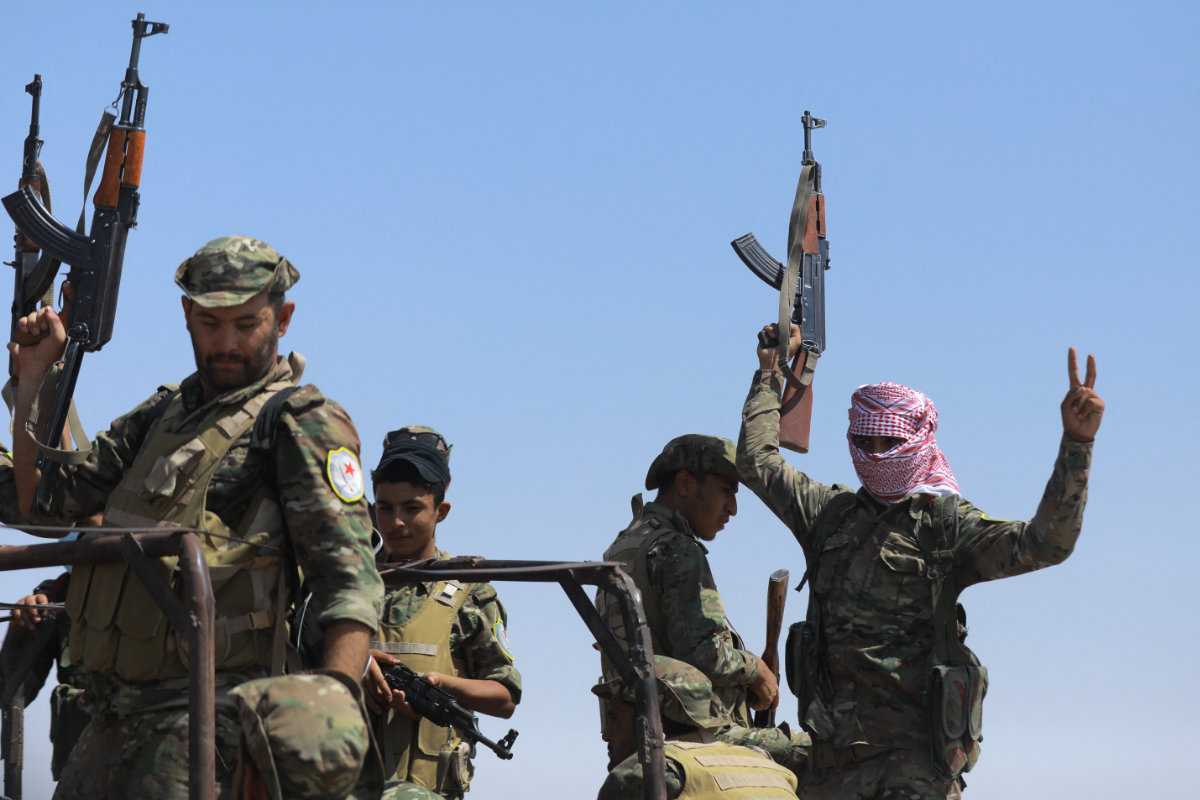
Clashes broke out in the Arab-majority Deir ez-Zor governorate in eastern Syria in August. October 27, 2023, after the Kurdish-led Syrian Democratic Forces arrested a commander in the Deir ez-Zor Military Council. (AFP)
September
Morocco and Libya
September was a particularly tragic month for North Africa. On September 8, an earthquake devastated the Marrakesh-Safi region of Morocco, killing nearly 3,000 people and destroying many of Marrakesh’s historical monuments.
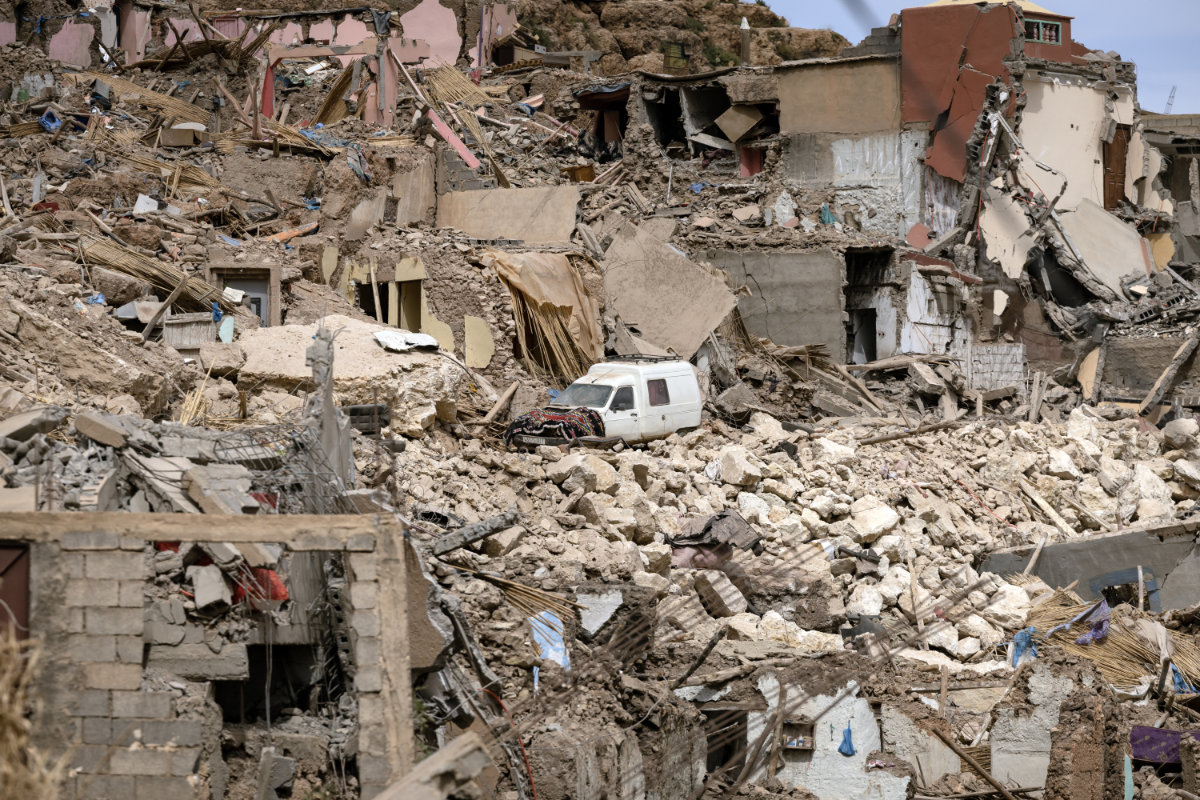
A view of the ruins in the earthquake-hit village of Imi Natala in central Morocco on October 5, 2023. (AFP/File)
This was the second deadliest earthquake this year after the earthquakes that struck Turkey and Syria in February.
Then, on September 9, Storm Daniel passed through eastern Libya, bringing with it devastating floods, which caused two dams to collapse on September 11, sending 1 billion cubic feet (30 million cubic metres) of water into already submerged areas.
The city of Derna in eastern Libya, inhabited by about 90,000 people, suffered the worst damage, with 25 percent of the city disappearing into the Mediterranean Sea.
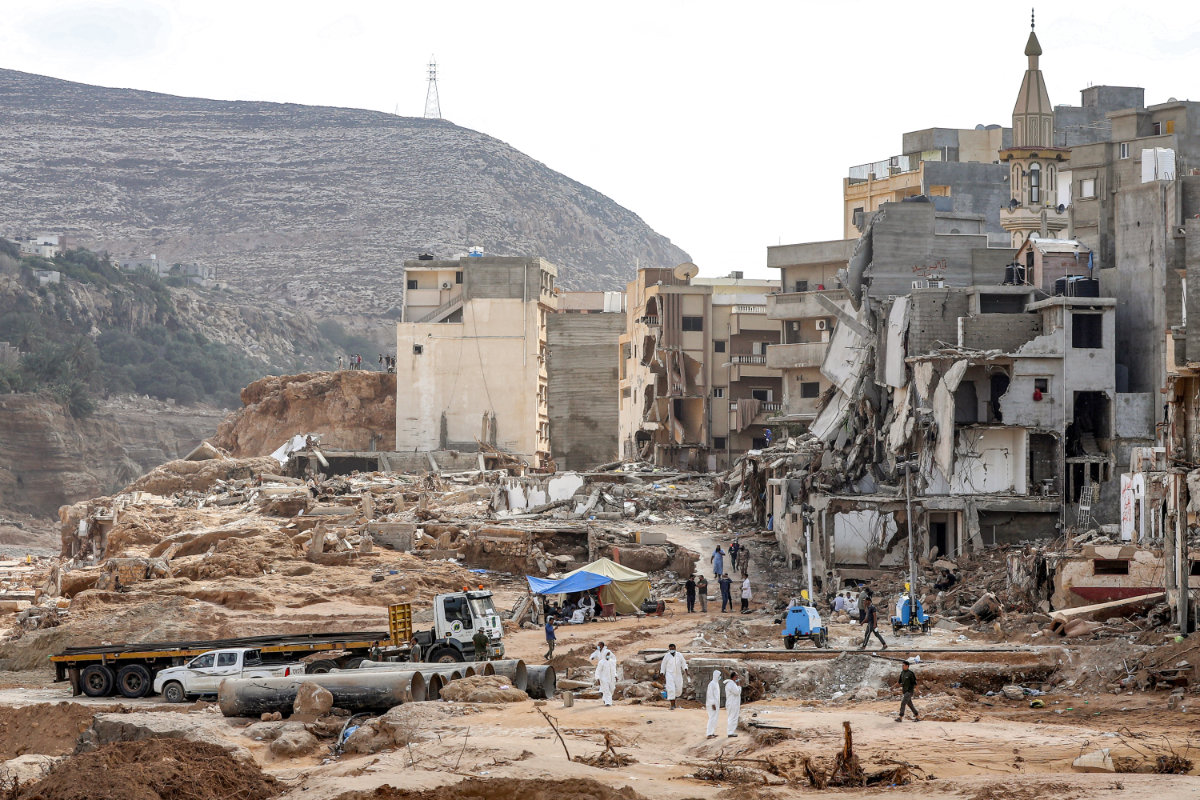
A tsunami-sized flash flood destroyed the Libyan coastal city of Derna on September 10, 2023, killing thousands of people. (AFP/Archive)
October December
The war between Israel and Hamas
October marked the beginning of the most devastating war between Israel and the Palestinian Hamas movement in the Gaza Strip.
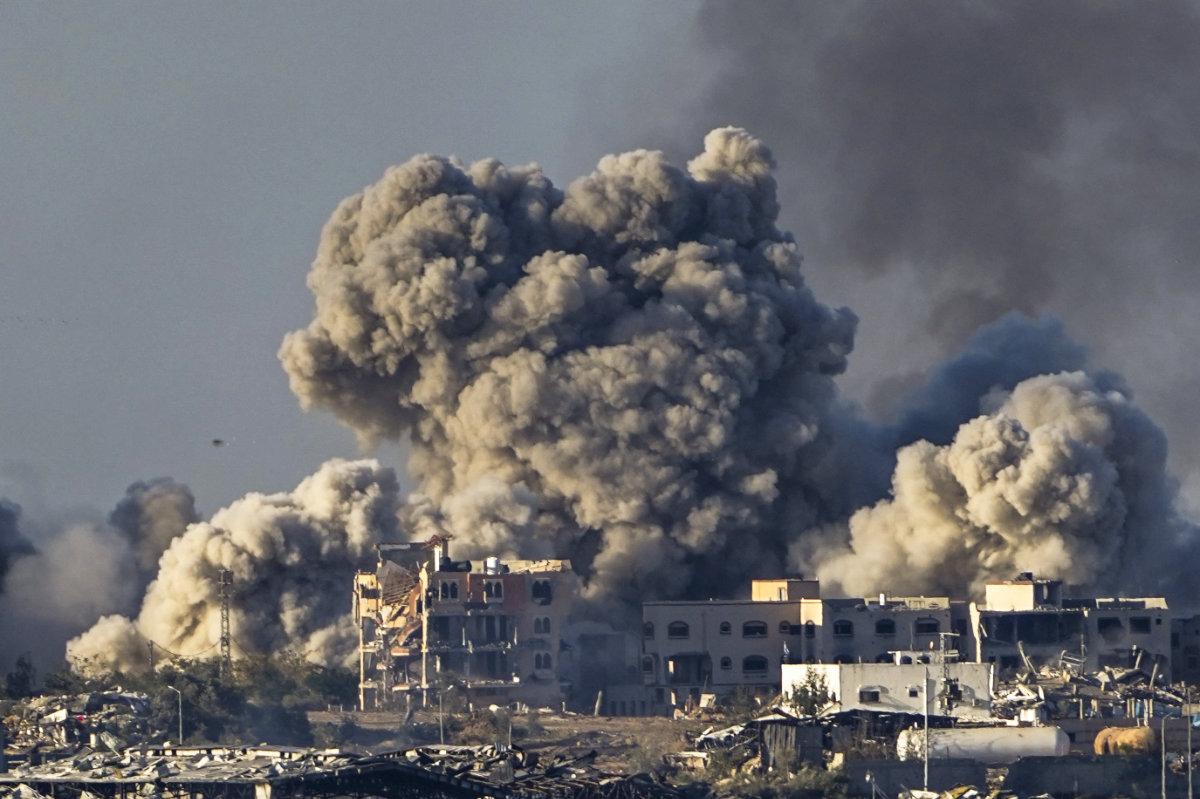
A tsunami-sized flash flood destroyed the Libyan coastal city of Derna on September 10, 2023, killing thousands of people. (AFP/Archive)
On October 7, Hamas launched an unprecedented cross-border attack on southern Israel, killing more than 1,200 Israelis – most of them civilians – and kidnapping 240 Israeli and foreign citizens.
Israel responded with a devastating military operation, killing more than 20,000 Palestinians so far – the majority of them women and children. The Israeli attack led to a mass displacement of civilians and caused one of the largest humanitarian disasters in recent memory.
November December
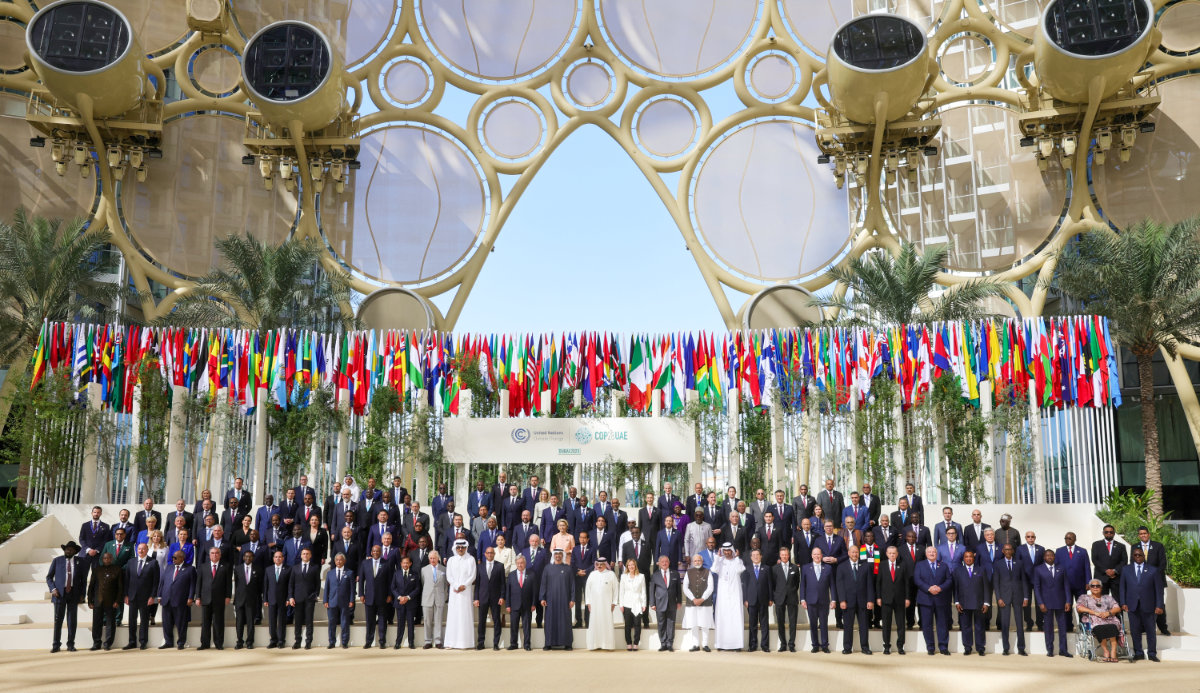
Participating world leaders and delegates take a family photo during the COP28 UN climate summit in Dubai on December 1, 2023. (AFP/File photo)
Conference of the Parties 28
Dubai hosted the 28th United Nations Climate Change Conference – COP28 – from November 28 to December 12, welcoming nearly 80,000 delegates and guests from around the world to discuss the pressing challenges posed by climate change and seek solutions.
